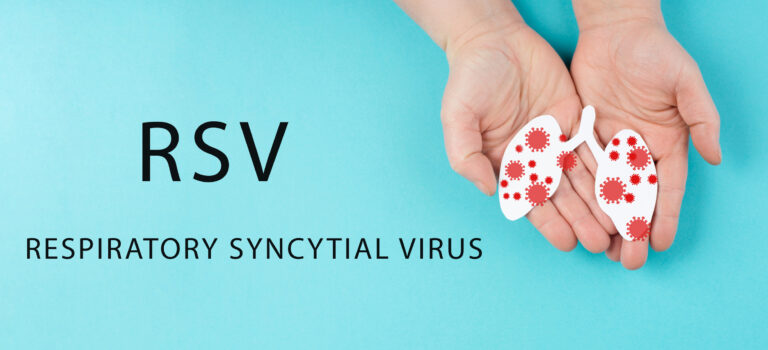As temperatures begin to drop, many find themselves enjoying the onset of winter. But for those with weakened immune systems, cooler weather often accompanies respiratory virus season.
Respiratory Syncytial Virus, or RSV, is a common respiratory virus often found during the fall and winter months. It causes mild, cold-like symptoms and can affect individuals of all ages. While most people recover from RSV quickly, it can be very serious for infants and young children. In severe cases, RSV can develop into pneumonia or bronchiolitis, requiring hospitalization.
RSV is transmitted person to person through close contact with someone who is infected. To prevent transmitting RSV to others the CDC recommends the following:
- Stay home when sick.
- Cover your coughs and sneezes with a tissue or your shirt sleeve (crook of your elbow), not your hands.
- Wash your hands often with soap and water for at least 20 seconds.
- Avoid touching your face with unwashed hands.
- Avoid close contact with others such as kissing, shaking hands, or sharing cups and eating utensils.
- Disinfect frequently touched surfaces such as doorknobs and mobile devices.
Currently, there are two FDA approved vaccines available to help prevent RSV:
- Beyfortus, a vaccine designed for neonates and infants born during or entering their first RSV season. Children can receive this vaccine up to 24 months of age.
- Abryso, a vaccine for women within 32-36 weeks (about 8 and a half months) of pregnancy, which will pass antibodies from mother to child. Abryso is also available to individuals that are 60 or older.
The pharmacy at Woman’s Hospital offers both Beyfortus and Abryso to patients who qualify. Talk with your physician to learn more about these vaccines and determine if they are right for you or your child.

